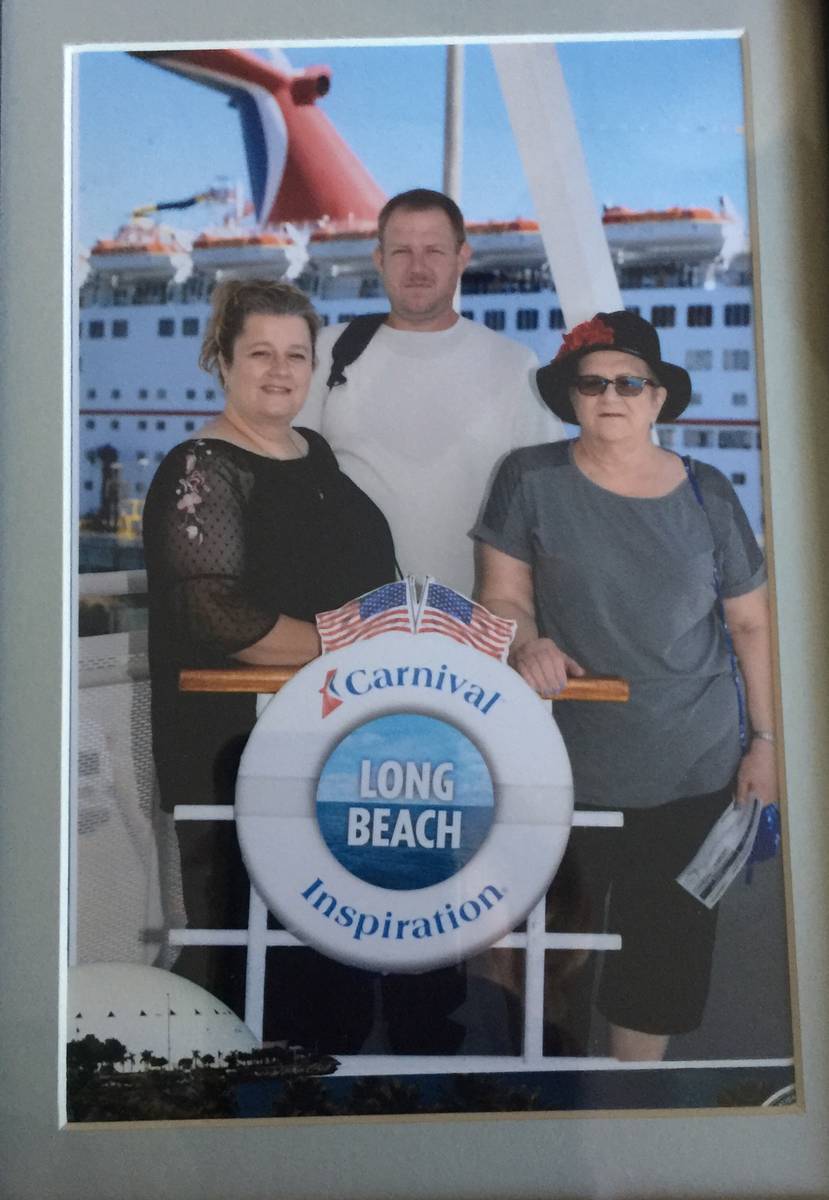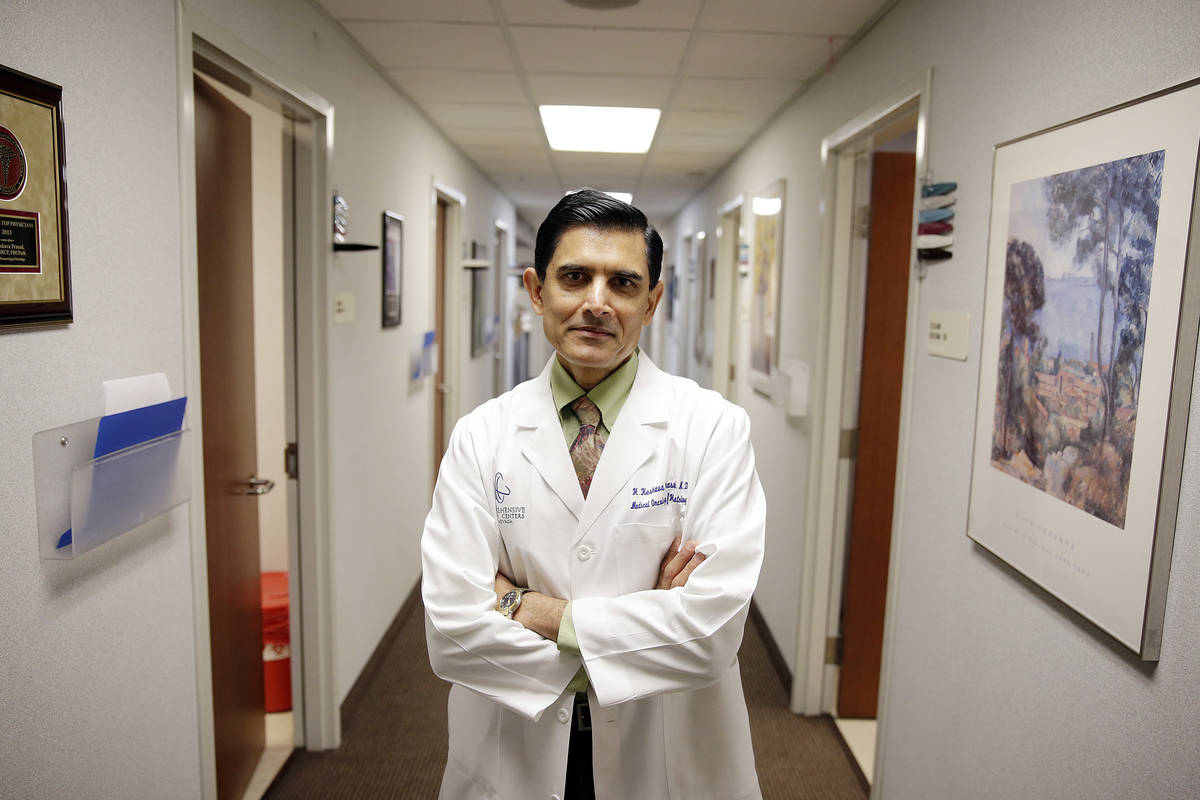Survivor finds support after cancer returns
Melinda Christoforo first learned she had breast cancer in 2008 after undergoing a routine mammogram examination. That same year, she and her doctor decided it was best that she have a mastectomy to reduce any chance of cancer returning.
Believing she was cancer-free, Christoforo turned her complete attention to caring for her husband, William, who was battling throat cancer. Unfortunately, he succumbed to his disease and passed away in 2009. Distraught, the dedicated wife decided to move from Mississippi to Las Vegas in 2012 to be close to her son and daughter-in-law.
In 2014, a severe cold, aggravated by shortness of breath, landed Christoforo in the hospital where she learned the devastating prognosis that her cancer had returned and had now spread to her lungs, which meant it had advanced to stage 4.
Christoforo, 65, a military police veteran, was sent by her health insurance company to Nellis Air Force Base for treatment. She only went to Nellis for a short time, opting to return to oncologist H. Keshava Prasad at the Comprehensive Cancer Centers of Nevada, who she previously met while in the hospital.
Prasad said it’s normal practice in a mastectomy that after a tumor is removed and examined, radiation treatments are not done unless the lymph nodes are enlarged. In a lumpectomy, where only the tumor and surrounding tissue are removed, then radiation is prescribed for several weeks. Follow-up examinations every three months for at least two years are highly recommended, he added.
Christoforo said she did do follow-up examinations, including doing her own self-examinations. The disease, however, had spread to her bones.
Prasad immediately put her on a regimen of prescription drugs and six weeks of radiation and chemotherapy. She currently sees him every six weeks, while maintaining a full-time job and attending support groups at The Caring Place, an adult services program of the Nevada Childhood Cancer Foundation designed to aid individuals diagnosed with cancer.
“My trust is in my doctor,” Christoforo said. “He does the worrying for me. … I keep working because it keeps me busy and keeps my mind off of things. I do chemo treatments every three weeks, and once a month I get a shot to strengthen my bones.”
Christoforo said in the first six months after she learned her cancer had returned, she sat on the couch and felt helpless. She credits Prasad and the Comprehensive Cancer Centers with pulling her out of the doldrums. She also remembered what her husband had told her when he was fighting his cancer.
“He always had a smile on his face,” Christoforo said. “He said, ‘Tomorrow there might be a cure for cancer.’ This is what I live by now. I needed to get off the couch and keep going.”
The support she gets from The Caring Place also helps Christoforo make it through each day of her battle with cancer. She attends meetings once a week.
“It’s fantastic because the other people there are going through the same thing I’m going through,” Christoforo said. “The meetings help because we share experiences.”
Group therapy sessions at The Caring Place have helped her overcome frustrations and anger. During one session, a facilitator had everyone decorate ceramic plates with examples of everything that was bothering them. Then the group went outside and took pleasure smashing the plates on the ground to release their inner demons.
Prasad recommends that women between the ages of 45 and 50 start undergoing mammograms or begin earlier if there is a history of breast cancer in their family. And if cancer is detected, there are several successful new treatments available besides chemotherapy and radiation, the doctor said.
The American Cancer Society recognizes these types of treatments:
Hormone or endocrine therapy is used to treat certain types of breast cancer affected by hormones such as estrogen and progesterone. Breast cancer cells’ receptors (proteins) attach to estrogen and progesterone and enable the cells to grow. This therapy stops the proteins from attaching.
“Avoid taking any estrogen supplements,” Prasad said. “Soy products are fairly safe, but hormone pills aren’t. In the 1990s, women took a lot of estrogen supplements, and there was a spike in cancer cases in the 2000s. Stopping estrogen supplements (in years that followed) was a key factor in reducing women’s cancer rates.”
Immunotherapy, or antibody treatment, involves the use of medicines to stimulate a person’s immune system to recognize and destroy cancer cells more effectively.
Targeted therapy involves drugs that specifically target cancer cells. In about 1 in 5 women with breast cancer, the cancer cells have too much of a growth-promoting protein called HER2 on their surfaces. These cancers are called HER2-positive breast cancers. Monoclonal antibody drugs are man-made versions of immune system proteins (antibodies) designed to attach to the HER2 protein on cancer cells to stop their growth.
“We try to avoid chemotherapy because of all the complications,” Prasad said. “Breast cancer is still serious, but certain subsets of tumors are now treatable with these new therapies.”



















